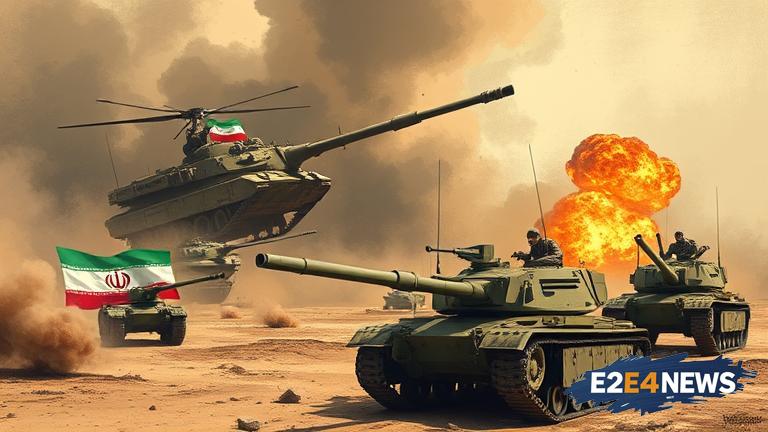In a surprising admission, Iran has revealed its military weaknesses in the event of a war with Israel. This acknowledgment has sent shockwaves throughout the region, with many questioning the country’s ability to defend itself. The admission was made by a high-ranking Iranian military official, who cited several areas of concern, including the country’s air defense systems and its ability to respond to Israeli airstrikes. The official also expressed concerns over the country’s lack of advanced weaponry and its reliance on outdated military equipment. Despite these weaknesses, Iran has vowed to continue its military development and modernization efforts. The country has been investing heavily in its military in recent years, with a focus on developing its ballistic missile program and improving its cyber warfare capabilities. However, these efforts have been hindered by international sanctions and a lack of access to advanced technology. The admission of military weaknesses has sparked a heated debate in Iran, with some calling for increased military spending and others advocating for a more diplomatic approach to resolving conflicts. The country’s military has been under significant pressure in recent years, with many of its top commanders being targeted by Israeli airstrikes. The Iranian military has also been involved in several high-profile conflicts, including the Syrian Civil War and the Yemen Civil War. Despite these challenges, Iran has continued to maintain a strong military presence in the region, with many of its neighbors viewing it as a major player in regional politics. The admission of military weaknesses has also sparked concerns over the country’s ability to respond to external threats, including the potential for a US military strike. The US has been increasing its military presence in the region in recent years, with many viewing Iran as a major threat to regional stability. The Iranian military has been on high alert in recent months, with many of its troops being deployed to the country’s borders. The country has also been conducting regular military exercises, including large-scale drills and training operations. Despite these efforts, the admission of military weaknesses has raised questions over the country’s ability to defend itself in the event of a major conflict. The Iranian government has been facing significant pressure in recent months, with many of its citizens calling for increased transparency and accountability. The admission of military weaknesses has been seen as a rare example of transparency from the Iranian government, with many viewing it as a positive step towards increased openness and accountability. However, others have criticized the government for its lack of action in addressing the country’s military weaknesses, with many calling for increased investment in the country’s defense capabilities. The admission of military weaknesses has also sparked concerns over the country’s ability to respond to internal threats, including the potential for civil unrest and protests. The Iranian government has been facing significant challenges in recent months, with many of its citizens calling for increased freedoms and reforms. The country has been experiencing a period of significant economic turmoil, with many of its citizens struggling to make ends meet. The admission of military weaknesses has raised questions over the country’s ability to respond to these challenges, with many viewing it as a major test of the government’s ability to maintain stability and security. In conclusion, the admission of military weaknesses by Iran has sparked a heated debate over the country’s defense capabilities and its ability to respond to external and internal threats. The country’s military has been under significant pressure in recent years, and the admission of weaknesses has raised questions over its ability to defend itself in the event of a major conflict. Despite these challenges, Iran has vowed to continue its military development and modernization efforts, with a focus on improving its defense capabilities and responding to the changing security landscape in the region.
